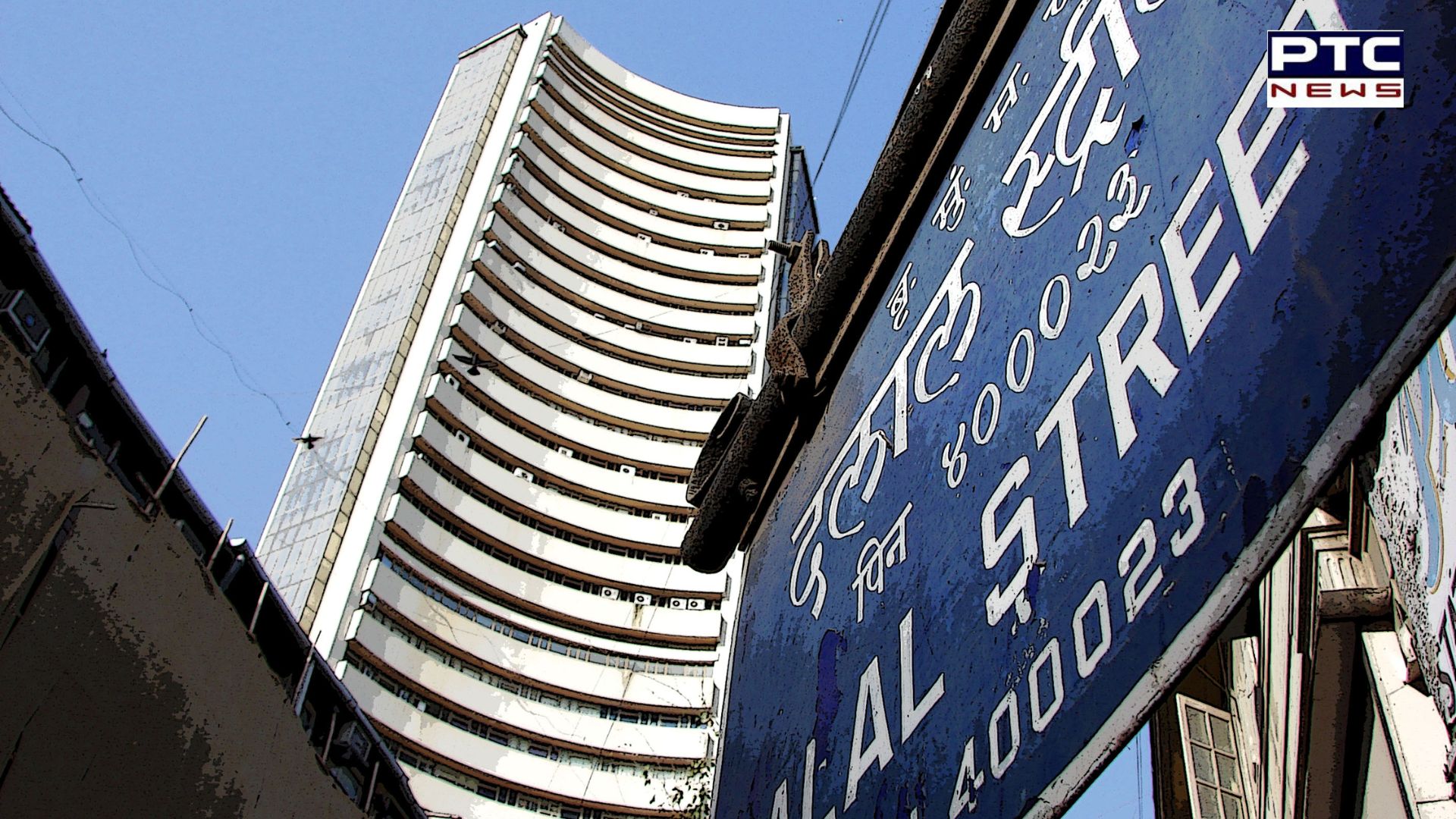
Dalal Street bloodbath: Sensex plunges 1,000 points, unraveling market crash causes
PTC News Desk: On Tuesday, Dalal Street, the epicenter of India's stock markets, experienced a tumultuous session as the Sensex plummeted by more than 1,000 points, accompanied by a substantial decline of over 300 points in the Nifty index. The bloodbath on the trading floor raised concerns and left market participants grappling with the reasons behind this drastic downturn.
As the market session concluded on January 23, the BSE Sensex settled at 70,419, marking a staggering decline of over 1,000 points. Concurrently, the NSE Nifty was down by 341 points, standing at 21,255 at 3 pm. The pronounced dip in these key indices comes after a day of market closure on January 22, during which the nation celebrated the consecration ceremony of the Ram Lalla idol within the newly-constructed temple.
/ptc-news/media/media_files/StQ1DTfiqxUwL1YNxyFK.jpg)
The recent market upheaval is particularly significant as the BSE Sensex hit its one-month low at 70,419 after experiencing a remarkable surge in January 2023, reaching an all-time high of over 73,000. The present downturn indicates a struggle for the market to reclaim its previous peak.
While both Nifty and Sensex had exhibited a substantial upswing earlier in the month, their trajectory has been marked by challenges and fluctuations. The benchmark indexes encountered a three-day consecutive decline last week, only to witness a modest recovery on Friday. However, the severe market crash on Tuesday prompted a closer examination of the underlying factors contributing to this volatility.
1. Global Economic Concerns: The global economic landscape has been volatile, with uncertainties surrounding geopolitical tensions, trade relations, and economic recovery, contributing to market anxiety.
2. Inflationary Pressures: Rising inflationary pressures domestically and globally have led to concerns about their impact on corporate earnings and economic growth, prompting investors to reassess their positions.
3. Interest Rate Hike Speculations: Speculations about potential interest rate hikes by central banks to curb inflation have created apprehension among investors, affecting their risk appetite and investment decisions.
4. Profit Booking: Traders and institutional investors engaging in profit booking activities, especially after recent market highs, have added to the selling pressure, triggering a cascading effect.
5. Macro-Economic Indicators: Weakening macro-economic indicators, including industrial production and employment data, have fueled apprehensions about the overall economic health, influencing market sentiments.
Also Read | Arun Yogiraj, artisan behind Ram Lalla idol, says, 'I feel like I am in a dream world'
Also Read | Ram temple: Key quotes from PM Modi's speech in Ayodhya
As market participants closely analyse these factors, the bloodbath on Dalal Street raises questions about the resilience of the financial markets and underscores the complex interplay of global and domestic factors shaping the trajectory of India's stock markets. Investors and analysts are now closely monitoring developments, seeking insights to navigate the uncertainties and make informed investment decisions in the face of evolving market dynamics.
/ptc-news/media/media_files/cMLKYQmYj0TYCwxl5YjA.webp)
HDFC Bank's Impact: The significant drop in HDFC Bank shares, falling by 3 percent, played a pivotal role in the decline of NSE Nifty and Nifty Bank. The decline in HDFC Bank shares alone contributed to one-third of the overall market fall.
Reliance Industries' Decline: Reliance Industries, considered India's most valued company, witnessed a 2 percent decrease in its shares. This decline added to the market turmoil, with Reliance becoming the second-largest contributor to the stock market crash on that day.
Foreign Institutional Investors (FII) Selling: Foreign institutional investors (FII) engaged in substantial selling of Indian equities, amounting to over ₹23,000 crore in January 2024, as reported by SEBI data. This massive sell-off by FIIs over the last two weeks has significantly contributed to the turbulence in the stock market.
Global Geopolitical Tensions: Escalating tensions in the Israel-Hamas conflict and the overall unrest in Gaza have had a considerable impact on crude oil prices and disrupted exports through the Red Sea. Market experts suggest that the disruptions in imports and exports are intensifying the strain on the stock market.
Technical Factors: Nifty 50, which had been fluctuating in the 21,500-21,700 range, experienced a drop below 21,500 on Tuesday. Analysts anticipate a continued decline in both Nifty and Nifty Bank due to mounting selling pressures, with expectations for this trend to persist over the next couple of weeks. These technical factors contribute to the overall market uncertainty and the downward trajectory of key indices.
Also Read | Ayodhya Ram temple: Significance, architectural details and more...
Also Read | From construction of Babri Masjid in 1528 to Ram Temple opening in 2024 | A Chapter Concluded
(Input from agencies)
-
